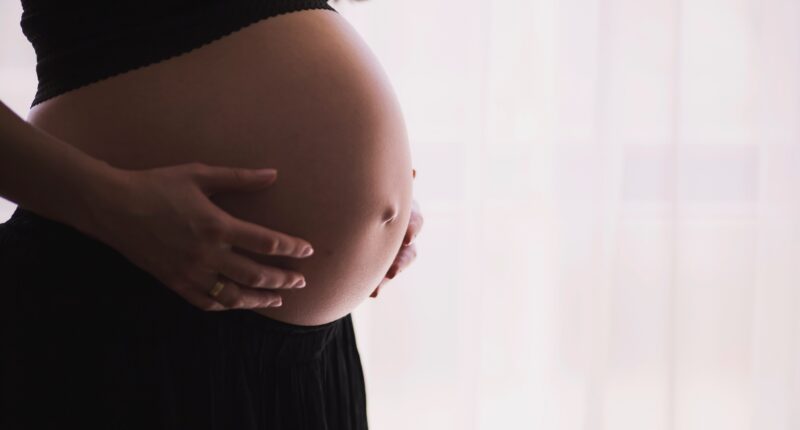Find out “Is it too late to get pregnant at 40?” At what age does a woman’s fertility start to decline? The answer isn’t as simple as you may think. While it’s true that a woman’s fertility does start to decline in her 30s, it doesn’t mean that it’s impossible to get pregnant at 40. In this blog post, we will explore the realities of getting pregnant at 40. We will discuss the declining fertility rates, the success rates of IVF, and the things you can do to increase your chances of getting pregnant at 40. Read on to learn more.
Table of Contents
The biological clock
As women age, their fertility declines. This natural decline is due to the decrease in the number and quality of a woman’s eggs. The biological clock is often used as a metaphor for this decline in fertility.
While a woman’s eggs are constantly being depleted, her ovaries are also working harder to produce eggs that are capable of being fertilized. As a result, the older a woman gets, the greater her chance of experiencing problems with fertility.
There are many factors that can influence a woman’s fertility, including her age, health, lifestyle choices, and medications. If you’re concerned about your fertility, it’s important to talk to your doctor. They can help you understand your risks and options for having a healthy pregnancy.
Is it too late to get pregnant at 40?
For many women, the thought of getting pregnant at 40 is a scary proposition. After all, the older you are, the greater the risk of health complications and genetic abnormalities.
However, it’s important to remember that every woman is different and there is no one-size-fits-all answer to this question. While it’s true that the risks of pregnancy do increase with age, 40 is not necessarily too late to get pregnant.
If you’re considering starting or expanding your family later in life, here are a few things to keep in mind:
First, consult with your doctor. He or she can help you understand the risks involved and what steps you can take to reduce them.
Second, don’t let age be the only factor in your decision-making process. There are many other factors that can impact your ability to have a healthy pregnancy, such as your overall health, lifestyle choices, and family history.
Third, remember that it’s never too late to make healthy lifestyle choices that can improve your chances of a successful pregnancy. Eating right, exercising regularly, and reducing stress will all help increase your chances of a healthy pregnancy at any age.
So if you’re wondering if 40 is too late to get pregnant, the best answer is: it depends. Talk to your doctor about your specific situation and make sure you consider all of the factors involved before making a decision.
The risks of waiting too long to have a baby
There are a number of risks associated with waiting too long to have a baby. These include an increased risk of:
- Miscarriage – this is more common in older women, particularly those over the age of 35;
- Pre-eclampsia – this is a condition that can occur during pregnancy and can be dangerous for both mother and baby;
- Gestational diabetes – this is another condition that can occur during pregnancy and can lead to complications such as high blood pressure and large babies;
- Chromosomal abnormalities – these are more common in babies of older mothers and can lead to conditions such as Down’s syndrome;
- Stillbirth – this is more likely to occur in pregnancies where the mother is over the age of 40.
All of these risks increase as you get older, so it’s important to bear them in mind if you’re thinking about delaying starting a family.
IVF and other fertility treatments
There are many fertility treatments available today that can help women who want to get pregnant at 40 and older. In vitro fertilization (IVF) is one of the most common and effective fertility treatments. During IVF, eggs are collected from the woman’s ovaries and fertilized with sperm in a laboratory. The fertilized eggs are then implanted into the woman’s uterus, where they hopefully will implant and grow into a healthy pregnancy.
Other fertility treatments include intrauterine insemination (IUI), where sperm is inserted directly into the woman’s uterus; ovarian stimulation, which helps the ovaries produce more eggs; and egg freezing, which allows women to have their eggs collected and frozen for later use.
The success rates of these fertility treatments vary depending on a number of factors, including the woman’s age, health, and the cause of her infertility. However, with modern technology and advances in medical science, there is a good chance that these fertility treatments will be successful for women who want to get pregnant at 40 or older.
Adoption
There are a number of factors to consider when deciding if it is too late to get pregnant at a certain age. The most important factor is your overall health. If you are in good health, there is no reason to believe that you cannot get pregnant and have a healthy baby at any age.
Another important factor to consider is your fertility. Fertility declines with age, so it may take longer to conceive as you get older. However, many women over the age of 40 are still able to conceive naturally.
If you are considering adoption, there are a number of things to keep in mind. First, the average wait time for an infant adoption is about two years. Second, the cost of adoption can range from $5,000 to $40,000 depending on the type of adoption you choose. And finally, you may need to be prepared for a lengthy home study process.
The pros and cons of being an older parent
There are a few distinct advantages to being an older parent. For one, you’re likely to be more financially stable and have a more solid career than you would if you were starting out in your 20s. This can provide stability for your family and help reduce stress levels. You’re also likely to be more mature and have a better sense of who you are, which can make you a more confident and effective parent.
Of course, there are also some challenges that come with being an older parent. You may have less energy than younger parents, and may find it more difficult to keep up with active kids. You may also deal with fertility issues or increased health risks during pregnancy. But overall, the pros tend to outweigh the cons for older parents – so don’t let age scare you off from starting a family!
Conclusion
Age may be a factor when it comes to fertility, but it is certainly not the only one. There are many women who have successful pregnancies in their 40s, and there are many resources available to help you if you want to get pregnant at this age. Talk to your doctor about your specific situation and what your options are, and don’t give up hope – you may be surprised at what is possible.








